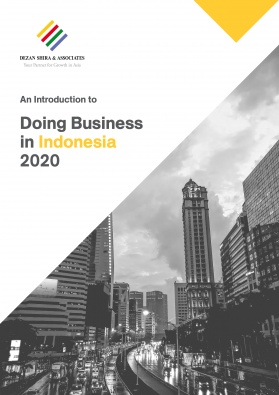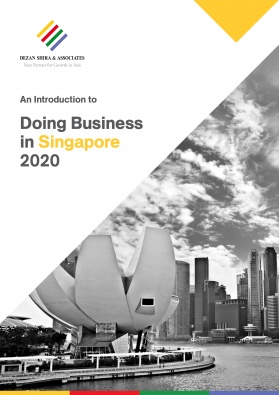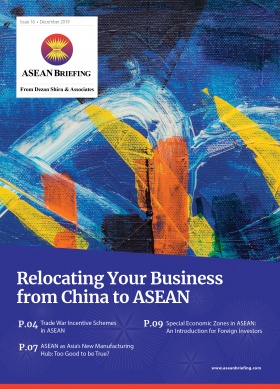Cambodia Launches New Online Business Registration System
- The Cambodian government launched its new online business registration system (Single Portal) on June 15, 2020.
- Investors can register their business and taxes under one platform, thus reducing unnecessary bureaucratic roadblocks.
- Investors can also make payments for the registration fee through the system via debit/credit card.
On June 15, 2020, the Cambodia government launched its latest online business registration system, also known as the Single Portal, which aims to approve applications within eight working days.
There are six ministries integrated into the system: the Ministry of Interior, Economy and Finance, Commerce, Labor and Vocational Training, the General Department of Taxation, and the Council for the Development of Cambodia. This means investors can register their business and taxes under one platform. Further, all fees are done online through various e-payment channels.
It is hoped that by using the Single Portal, investors will avoid needless bureaucracy; the government aims to expand the system to all ministries and institutions – meaning all licenses and certificates will be issued digitally going forward.How do you apply for a business license?
There are several steps investors need to follow to begin their application.
Creating an account
After opening the Sigle Portal website, visitors should open the ‘Register Business’ icon, which will instruct the user to download the CamDigiKey app for either Android or iOS.
Visitors should download the app on their mobile device and create an account. Once this has been approved, scan the QR code on the Single Portal website with the CamDigiKey app; the user can then begin registering their business.
In addition to entering their basic information details, there are various documents that investors will need to upload into the system.
To register a foreign company, the following documents are required:
- Lease agreement or land title of the business’ location;
- A photo of the current Director, which should be no older than three months and taken on a white background;
- Passport ID or national ID card of the Director;
- The company’s or parent company’s articles of association;
- Letter of appointment of the Director in the case of a representative office or branch office; and
- Any special licenses.
Tax registration
Once the business is registered, the applicant should then fill out the tax registration section.
Foreign companies will need to upload the following documents:
- Property information of where the business is domiciled or proof of payment of property tax; and
- Bank account details (this information must be given in digital form within 15 working days after tax registration.
Notice of enterprise opening
The ‘Notice of Enterprise’ section requires the applicant to enter details regarding the estimated number of employees (local and foreign) and their gender.
Moreover, the applicant must state the type of weekly holidays available for employees and the number of working hours per week.
Pricing scheme
The final step is the payment, which can be done through debit/credit cards or through the ABA Bank app.
The cost of business registration varies based on the type of enterprise and its taxpayer classification by the General Department of Taxation.
Foreign companies will first need to reserve a company name at a cost of 25,000 riels (US$6). The business registration fee will cost 1 million riels (US$246).
Tax classifications
Taxpayers are classified under three categories, small taxpayer, medium taxpayer, and large taxpayer.
Small taxpayers are businesses that:
- Have an annual turnover ranging from 250 million riels (US$61,000) to 700 million riels (US$172,000); or
- Have a total turnover exceeding 60 million riels (US$15,000) for three consecutive months; or
- Are expecting turnover to exceed 60 million riels (US$15,000) for the next three months; or
- Engaging in price consulting or surveying in the supply of goods and services.
The tax registration fee for small taxpayers is 20,000 riels (US$4.90) and the patent tax fee is 200,000 riels (US$49).
All registered taxpayers in the country are obligated to pay patent tax, which is dependent on what the taxpayer is classified as under the self-assessment tax regime.
Medium taxpayers are businesses that:
- Have an annual turnover between 700 million riels (US$172,000) and four billion riels (US$1 million); or
- Is registered as a legal entity or representative office in the country.
The tax registration fee for medium taxpayers is 400,000 riels (US$98) and the patent tax fee is 600,000 riels (US$147).
Large taxpayers are businesses that:
- Have an annual turnover of more than and four billion riels (US$1 million); or
- Is registered as a subsidiary of a multinational company or foreign company branch; or
- Is registered as a Quality Investment Project.
The aforementioned patent fees for all types of taxpayers are the discounted prices that businesses will pay for their first year after registration. The full price (double the listed prices) will need to be paid in the subsequent years.
Notice for enterprise opening fee
There is a fee for the ‘notice for enterprise opening’ set at 120,000 riels (US$30) for all enterprise types.
Applying for QIP projects
Through the Single Portal, investors can also apply for QIP (Qualified Investment Projects) projects. QIPs are projects that are eligible to receive fiscal and non-fiscal incentives from the Cambodian Investment Board. They are divided into three types – domestic QIPS, export QIPs, and supporting industry QIPs.
About Us
ASEAN Briefing is produced by Dezan Shira & Associates. The firm assists foreign investors throughout Asia and maintains offices throughout ASEAN, including in Singapore, Hanoi, Ho Chi Minh City and Jakarta. Please contact us at asia@dezshira.com or visit our website at www.dezshira.com







